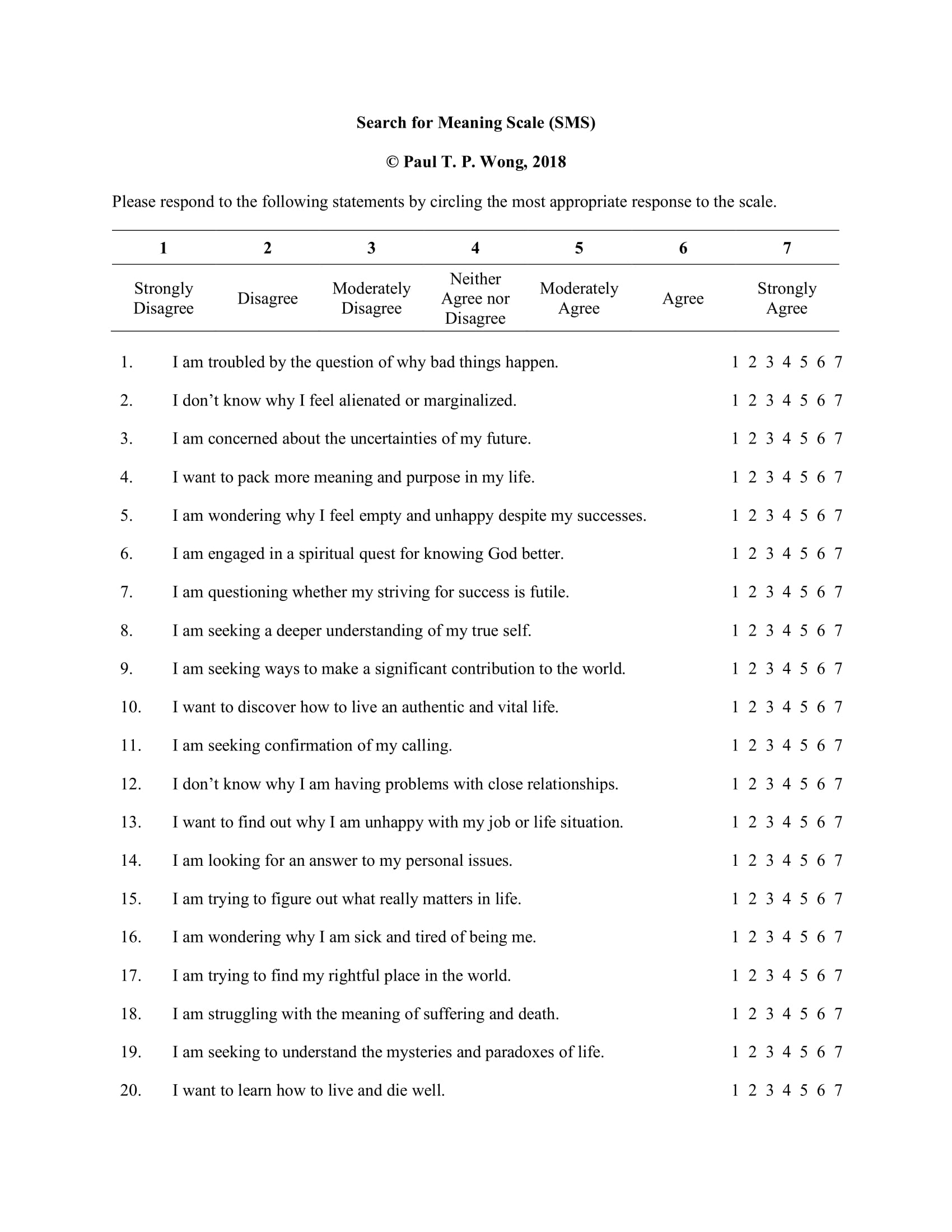When life goes on smoothly and everything is simple, there seems to be no need to wrestle with existential concerns. Most people are happy to live their simple but shallow lives, revolving around “eat, drink, work, and be happy.” Unfortunately, even when living in one of the safest cities, bad things can still happen to innocent people. If we do not have an adequate philosophy of life and have not discovered the meaning of suffering, we will not be able to cope with the horrors of life, which will shatter our assumptive world (Janoff-Bulman, 1992) and plunge us into an existential crisis.
Therefore, it is important for us to reflect on the important meaning of life questions, such as: How can I make the best use of my life? Am I willing to make personal sacrifices for a better future? Do I still have reasons for living, even when my life is full of pain and suffering? What is the value of my life?
Negatively and Positively Oriented Meaning-Seeking
Only when negative things happen to us do we spontaneously ask why questions (Wong & Weiner, 1981). This negativity bias is hardwired in us for our survival. Such negatively-oriented meaning-seeking motivates us to find reasons and solutions for problems; more importantly, it forces us to confront the painful truth about the dark side in our own lives.
Bad things are effective in waking us up from our own complacency and self-deception; they also challenge the adequacy of our existing beliefs and values. They expose the shallowness and emptiness of a self-centered and pleasure-oriented lifestyle. They force us to ask the tough questions, such as: If I were to die now, have I really lived? Shall I pursue something more meaningful than just making a living? What really matters?
Thus, negative events eventually lead to positively-oriented meaning-seeking, which motivates us to discover our true purpose in life and our role in this world. It is the process of striving towards some worthy future goals that make us feel fully alive and contributes to our personal growth. In short, meaning therapy is based on a two-factor theory of meaning-seeking.


The following documents are relevant to this research question of search for meaning:
- Wong, P. T. P., & Weiner, B. (1981). When people ask “Why” questions and the heuristic of attributional search. Journal of Personality and Social Psychology, 40(4), 650-663.
- Wong, P. T. P. (2011). Quest for Meaning Scale.
- Wong, P. T. P. (2016). How to measure existential meaning [Review of the manuscript of The Multidimensional Existential Meaning Scale: A tripartite approach to measuring meaning in life]. Paul T. P. Wong.Retrieved from http://www.drpaulwong.com/how-to-measure-existential-meaning
I have revised the Search for Meaning Screen Test (SMST) (Wong, 2011) into the Search for Meaning Scale (SMS) (Wong, 2018) by rephrasing the questions (Yes/No) into statements (7-point Likert scale) and removing 4 items for a total of 20 items.
References
1. Janoff-Bulman, R. (1992). Shattered assumptions: Towards a new psychology of trauma. NY: Free Press.
2. Wong, P. T. P., & Weiner, B. (1981). When people ask “Why” questions and the heuristic of attributional search. Journal of Personality and Social Psychology, 40(4), 650-663. https://doi.org/10.1037/0022-3514.40.4.650
Cite
Wong, P. T. P. (2018, May 11). Two-factor theory of search for meaning. Dr. Paul T. P. Wong. Retrieved from http://www.drpaulwong.com/two-factor-theory-of-search-for-meaning/
